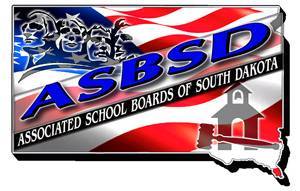Two-thirds of Gov. Dennis Daugaard’s teacher pay increase proposal advanced in the legislative process.
Senate State Affairs committee members unanimously approved Senate Bill 131, which establishes a target teacher salary and a target teacher ratio and to revise certain provisions regarding education funding, and Senate Bill 133, which appropriates funds for districts to use innovative education options.
In addition, Senate Bill 133 passed the Senate on a 33-1 vote.
ASBSD supports both bills.
“If we want to be competitive in teacher salaries we need to set a target…and work towards that,” ASBSD Executive Director Wade Pogany testified during the committee hearing for SB 131.
“We need to make this change to have a reasonable debate about where teacher salaries need to be.”
Senate Bill 131 establishes a new funding formula for K-12 public schools based on a student-to-teacher ratio and sets statewide average teacher salary goal of $48,500.
“We are always trying to achieve to do better,” Sen. Deb Soholt, Co-Chair of the Blue Ribbon Task Force, said. “Does it get us all the way where we need to be? No, but it’s a heckuva start.”
In addition, the bill would adjust provisions in the Capital Outlay fund, institute equalization principles for other revenue and set caps on general fund reserves.
An in-depth breakdown of the funding pieces of the bill can be found here.
SB 131 was amended to include a requirement that 85 percent of the new revenue schools receive be spent on certified instructional staff, with a penalty of a 50 percent of the increased state aid be returned to state if the target is not met.
The amendment also institutes a waiver process for districts to apply to a review committee – also established in the bill – should they not reach the 85 percent or general fund reserve cap targets.
SB 133 would appropriate $5 million to a variety of programs that would assist school districts in sharing services, offering online classes and assisting their teachers.
The bill would provide funding for districts to apply for technology improvement grants, share services with other districts, increase funding to Northern State University’s e-Learning program in order to expand course offerings, streamline teacher certification reciprocity, fund a teacher mentoring program and reward nation board certification for teachers.
Sen. Soholt said SB 133 addressed “not only how we’re going to fund education, but how we’re going to support education.”
SB 131 awaits review by the full Senate while SB 133 heads across the hall to the House.
For updates on the bills, check out the ASBSD Blog, Twitter feed and Bill Tracker page.
